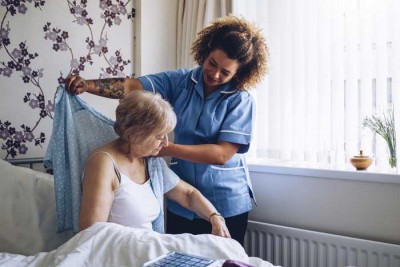The Impact on patients
Our patients can be split into groups depending on pre-covid mental health
- Patients already diagnosed on GP register- stable/unstable
- Newly diagnosed pre-lockdown under surveillance
- Patients with previous diagnosis but no longer receiving treatment
- New presentation of mental health problems
- Those at risk of developing mental health problems as a result of covid-19
The first 2 groups should be known to practitioners and follow-up by telephone call as a routine monitoring should be in place. Hopefully this will enable patients and doctors to identify patients who are really struggling before their mental health deteriorates too significantly.
Once this group of patients have been reviewed those with a past mental health diagnosis could be reviewed as a telephone consultation or possible questionnaire to see how they are coping, and more formal review initiated if concerns are raised from initial assessment.
The fourth group brings its own challenges. Covid-19 will bring about all manner of mental health presentations. Increasing anxiety, isolation leading to low mood and depression, OCD-related handwashing and potential PTSD aftermath.
Those who actively seek help should be easily identified and treated appropriately. But what of those who are not forthcoming with their mental health symptoms? Should a brief screen of mental health be incorporated into our regular phone calls? A quick end of consultation question, ‘how are you coping with everything?’, ‘do you ever feel like you are not coping?’, triggering a more formal review if concerns are raised.
The final group is potentially vast. As discussed above we are all at risk of mental health problems as a result of this pandemic. However, there are some patient groups who are more at risk and could be considered for more active monitoring.
Key workers
The group who are being faced head-on with the risk of contamination daily by going to work. A large proportion of this group will be healthcare workers - ourselves and our colleagues. Occupational health are working with hospital staff to try and reduce stress and help support NHS staff. Hopefully this will ease the burden on primary care for this group. But what of primary care? What support are GPs and their staff being offered? There should be regular reviews, debriefs, team talks and support for this group of staff.
Unemployed/furloughed as a result of covid-19
The depression module teaches us that for many people employment not only gives financial stability but also a sense of purpose and identity in life. Unemployed people have been shown to have higher rates of mental health conditions, this, now coupled with, the underlying fear of global pandemic and loss of freedom of movement makes all working age people at risk.
Elderly and physically unwell
For those who have received shielding letters or are in the age group advised to totally isolate the knock-on effect on mental health is potentially enormous. Those in nursing homes will have the support of care workers but the added stress of the outbreaks within the homes themselves. Those at home alone may have carers visits but the use of PPE and social distancing where possible has made these visits less personal. Many are left home alone with no contact with the outside. The elderly are less likely to have access to online resources to engage in virtual socialising and may find it harder to seek health care support.
People already at risk
These groups include children at risk and victims of domestic violence. The incidence of domestic violence has increased dramatically since the lock down and there are ongoing concerns for children at risk.
Looking through all of these patient groups the amount of people who may need or would benefit from some sort of mental health support during these times is overwhelming and encompasses almost the entire practice population. It would be impossible to follow up every individual who could be at risk, therefore, what approach should you take?

